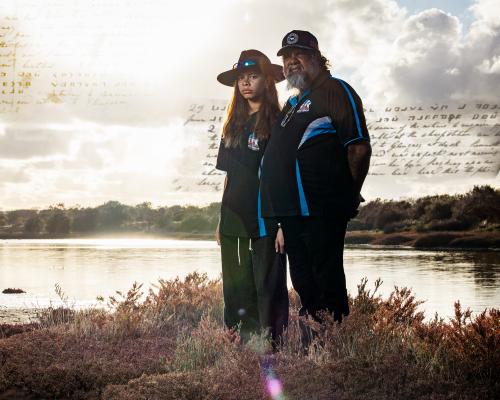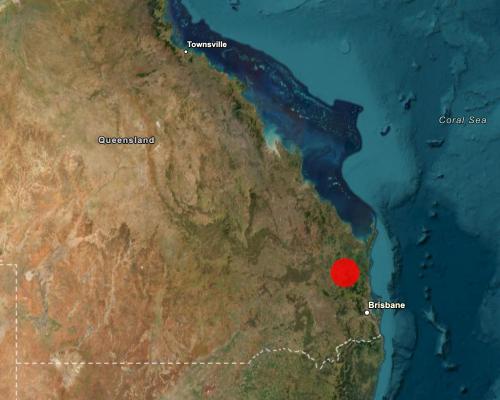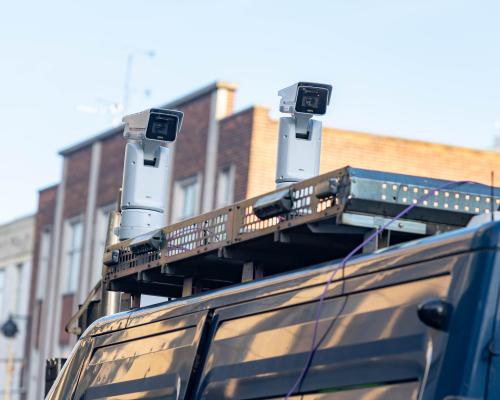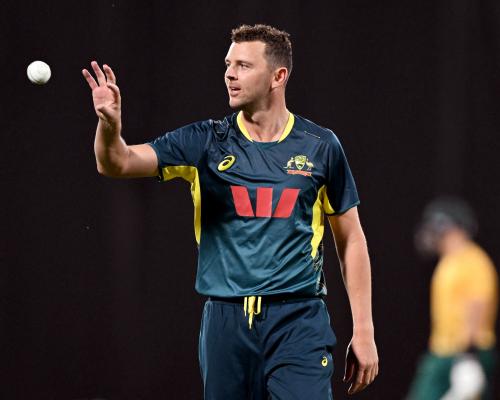
Warning: This article contains historical records that use racist and offensive language, and descriptions of events that will be distressing to some readers
The Naaguja Yamatji elder Derek Councillor has heard accounts of Major Logue passed down for generations.
He would ride up on his horse shooting Aboriginal people on sight.
“He wouldn’t ask questions – he’d just shoot and kill,” Councillor tells Guardian Australia.
“When people used to see him riding up to wherever they were, a lot of people were scared and would run away, they wouldn’t [want] to be where he was.”
The stories of a feared man once whispered about in communities around Geraldton, 400km north of Perth, have been confirmed by the man’s own hand, 123 years after his death.
Logue – Major is his given name, not a military rank – went on to become one of Western Australia’s earliest parliamentarians. He kept a diary from 1850 to his death in 1900, a version of which is being prepared for publication. But those behind the forthcoming book have decided to omit information relating to the killings.
Councillor and other traditional owners are demanding that the diary be published in full.
Amid handwritten diary entries that document 50 years of daily life are chilling accounts of the killing of local Yamatji people.
Writing in a code called pigpen, also known as Freemason’s cipher, Logue described the murders of at least 19 Yamatji people between 1851 and 1853.
The coded entries, critically by Guardian Australia as part of the Descendants series, record a number of attacks on Yamatji by Logue and others – some where he was directly responsible, others recording attacks made by his neighbours. Some of the dead, who appear in earlier pages of the diary as helping the settlers, are listed by name.
A version of his diaries is being prepared for publication by a small press publisher in WA which focuses on colonial diaries and historical texts and includes books about Aboriginal Australians. The publisher’s latest booklist, published in July 2025, includes descriptions of historical works using outdated and racist terms, including one use of “nigger”, titles that repeatedly refer to Aboriginal people as “savages” and in one title “clapped out gins”.
A local historian, Nan Broad, who has worked on the diaries for six years and prepared them for publication, tells Guardian Australia that she had translated the coded sections and knows that they describe the murders of Aboriginal people.
“It’s a bit hard to single that poor fellow out just because he wrote a diary – that’s a bit underhanded,” she says.
“To protect the person who holds the diaries we felt it was … expedient, perhaps, to not have that in writing. Everyone knows they did it.”
Broad says Logue’s actions on the frontier were well known locally but the nation is not yet ready to understand its often bloody and brutal past.
“I am very distressed by that situation,” she says. “But we are too close to it at the moment.
“In Australia we are too close to the colonisation, confrontation and the history that went on. It’s not old history yet to be looked at dispassionately.”
Frontier killings and massacres were widespread from the arrival of the first white settlers to Australia in 1788. An eight-year project by the University of Newcastle documented hundreds of massacres and frontier killings. That project, published in conjunction with Guardian Australia, found that 10,657 people were killed in at least 438 colonial frontier massacres.
Councillor says the full extent of the Logue diaries, including the coded sections of past deeds, must be published to heal and acknowledge the truth.
“They should be published in full,” he says. “We Yamatji people, we don’t half-tell a story. We tell the story fully. If he did do all these killings and it’s in his diaries, it should be published that he did do it.”
There are 11 coded diary entries between 1851 and 1853 that describe shooting and killing Aboriginal people; witnessing others doing the shooting; going on a “campaign” to kill natives; and later riding over the “battlefield” and seeing the bodies of those he killed lying dead or “hastily buried”.
The diaries do not contain mention of the 1954 Bootenal massacre, in which 30 Naaguja men, women and children were recorded as killed by a group of settlers led by the local police deputy superintendent, John Nicol Drummond, Logue’s brother-in-law. The Naaguja say the actual number killed was in the hundreds.
Scans of the diaries have been available on microfilm at the Battye library in Perth since the 1950s.
But publisher Hesperian Press and a descendant of Logue who holds the original diaries have declined to publish the coded sections in the version being prepared for sale. Broad says she supports their decision.
Hesperian Press’s owner, Peter Bridge, did not respond to questions about Yamatji concerns, but in an earlier statement to Guardian Australia said the coded sections of Logue’s diaries were “in unique characters” and “are not omitted – they are simply unprintable”.
He added that the location of the omitted passages would be indicated in the published book; that the printed edition of the Logue diaries would make “no attempt to deceive, suppress or editorialise” and that Hesperian Press was publishing a primary document “faithfully and unflinchingly, as is our usual method”.
“If your concern is that the code may conceal politically potent material – I suggest that you take that up with Logue himself, who is, unfortunately, unavailable for an interview,” he said.
“We publish the diaries because they are historical documents, not a moral confession.”
Councillor says the diary “just confirms what we as Yamatji people have said”.
“We weren’t lying when we told these stories,” he said “This actually proves it.
“The stories of those people that were involved in those massacres and the people that died, they can rest easy now because their story’s been told.
“They’ll be able to finally settle, instead of being tormented and their soul not resting. They will finally rest in peace.”
• Indigenous Australians can call 13YARN on 13 92 76 for information and crisis support; or call Lifeline on 13 11 14, Mensline on 1300 789 978 or Beyond Blue on 1300 22 4636
• Lorena Allam is a professor at the Jumbunna Institute for Indigenous research at the University of Technology Sydney





